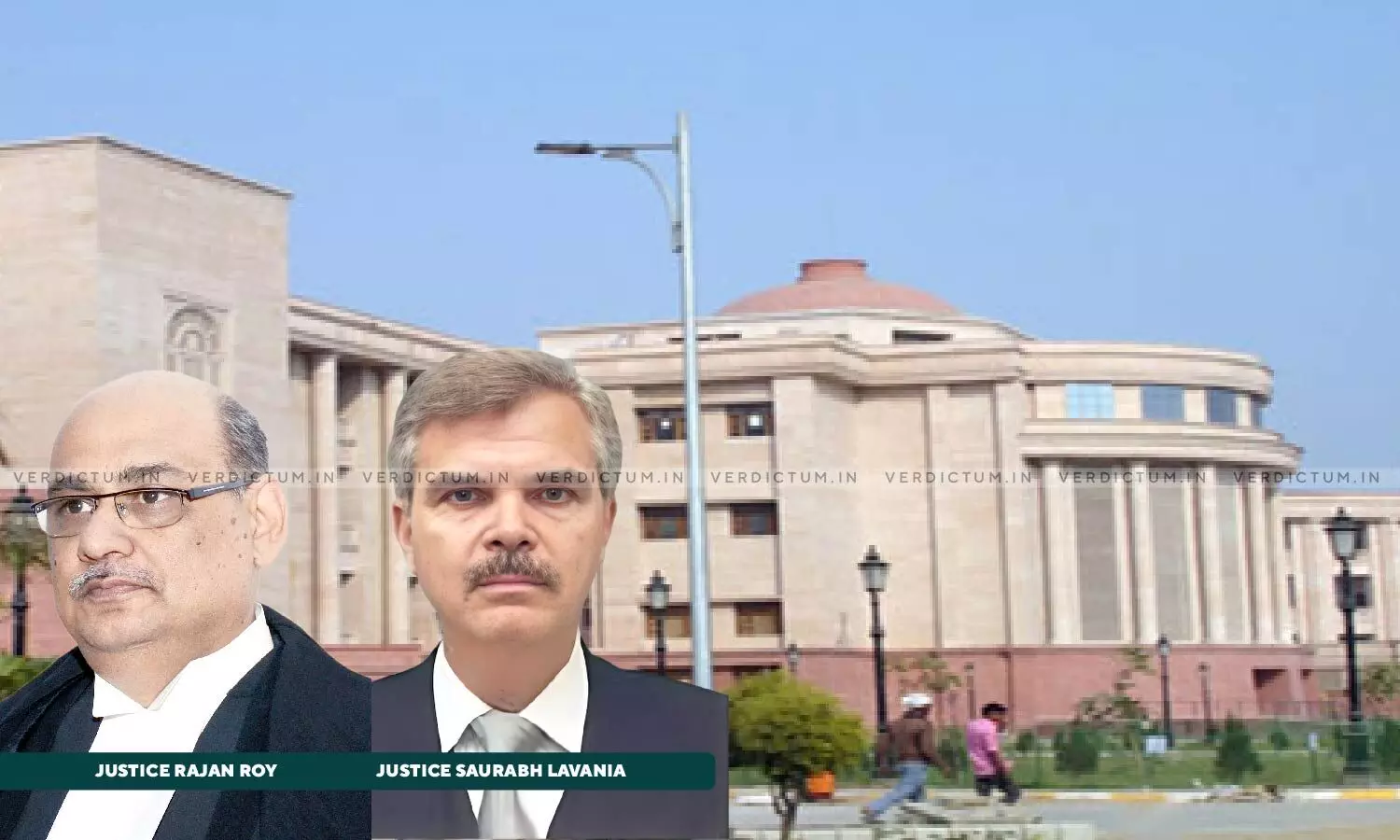
Once Limitation Period Starts It Cannot Be Stopped By Any Force Except Law: Allahabad HC Reiterates
 |
|The Allahabad High Court, Lucknow Bench, dismissed a Review Application filed by a Government Servant subjected to disciplinary proceedings. A punishment order was passed against him under U.P. Government Servant (Discipline and Appeal) Rules, 1999 (Rules, 1999).
The Court reiterated that once the limitation period starts, it cannot be stopped by any force except law. The Court emphasised that the limitation period would be calculated from the date of the Punishment order. Therefore, the appeal filed by the Petitioner against the impugned punishment order was barred.
The Bench comprising Justice Rajan Roy and Justice Saurabh Lavania observed, “It is trite that once the limitation period starts it cannot be stopped by any force except by the force of law”.
Advocate Rama Kant Dixit appeared on behalf of the Petitioner/Applicant.
The Applicant/Petitioner was subjected to disciplinary proceedings under the Rules, 1999. The disciplinary proceedings were conducted following the procedure provided under Rule 7 and the punishment order. The Punishment Order resulted in the Applicant/Petitioner receiving a censure entry and his integrity being questioned. The Applicant/Petitioner appealed before the U.P. State Public Services Tribunal (Appellate Authority) on 25 January 2017. The Tribunal dismissed the Application due to the bar by limitation under Section 5 of the U.P. Public Service (Tribunal) Act, 1976 (Act, 1976). Aggrieved by the order, the Petitioner/Applicant has filed a Review Application under Rule 12, Chapter V of Allahabad High Court Rules, 1952 (Act, 1952), read with Sections 114 and 151 of the Civil Procedure Code (CPC).
The Court observed that Rule 11 of the Rules, 1999, states that appeals must be made within 90 days of receiving an order, and there is no provision for an extension. The Tribunal cannot condone the delay in filing an appeal.
“The expression ‘in accordance with rules or orders regulating his conditions of service’ in the context of present case is relevant. In view of this expression, a representation/appeal/revision or any other petition for the purposes of seeking benefit of Section 5(1)(b)(ii) ought to have been filed strictly in terms of Rules or Orders, as the case may be, applicable, which in the instant case are the Rules of 1999”, the Court noted.
Furthermore, the Court observed that Section 5(1)(b)(ii) of the Act 1976 states that the limitation period for challenging orders of punishment in disciplinary proceedings is one year, excluding the time between filing and receiving the final order. Such must be done according to the relevant Rules or Orders, in this case, the Rules, 1999.
“Section 5(1)(b)(ii), which form part of above quoted portion of the judgment dated 28.03.2019, says that for computing the period of limitation provided under the Act of 1976 challenging the order(s) of punishment passed in the disciplinary proceedings, which is 'one year', the period beginning with the date on which the public servant makes a representation or prefers an appeal, revision or any other petition (not being a memorial to the Governor), in accordance with the rules or orders regulating his conditions of service, and ending with the date on which such public servant has knowledge of the final order passed on such representation, appeal, revision or petition, as the case may be, shall be excluded”, the Bench noted.
The Court observed that the Appellate Authority was correct in rejecting the appeal as it was filed after the 90-day limitation period. The Court noted that the limitation period cannot be stopped by anything except the law.
In this case, the Court asserted that the limitation period began on March 20, 2015, and the appeal was filed more than a year later, beyond the 90-day limit. The appeal was dismissed on January 25, 2017, as it was time-barred. Therefore, the period between March 20, 2015, and January 25, 2017, cannot be excluded under Section 5(1)(b)(ii) for approaching the Tribunal regarding the punishment order dated March 23, 2015. As a result, the claim petition concerning the punishment order dated March 20, 2015, was time-barred.
The Court noted that the following question was whether the Tribunal rightly rejected the claim petition as being barred by limitation despite being filed within the limitation period. This Court finds that the Tribunal acted correctly in dismissing the claim petition and observed,
“(i) In this case, the appeal was filed after about more than one year from the date of order of Disciplinary Authority dated 20.03.2015 i.e. on 11.04.2016 which was in violation of Rule 11 of Rules of 1999. Appellate authority does not have any power to condone such delay.
(ii) Vide order dated 25.01.2017, the appeal was rejected being barred by limitation, rightly so.
(iii) According to Section 5(1)(b)(ii) of the Act of 1976, if a statutory representation or appeal or revision or any other petition is preferred strictly in accordance with the applicable Rules/Government Orders, then in that eventuality alone, the period during which the said representation/appeal/revision was pending can be excluded for the purposes of computing the limitation to approach the Tribunal, which as per Section 5(1) (b)(i) is one year and the Division Bench of this Court has already observed that no application for condonation of delay would be maintainable to condone the delay in approaching the Tribunal challenging the order of punishment passed by the Disciplinary Authority or Revisional Authority under the Rules and as such, in view of limitation i.e. one year provided under Section 5(1)(b)(i), the claim petition challenging the main order dated 20.03.2015 which was not affirmed on merits by the appellate order dated 25.01.2017 was neither entertainable nor maintainable in the year 2017 before the Tribunal”
Accordingly, the Court dismissed the Application.
Cause Title: Ajai Kumar Singh v State Public Services Tribunal Lucknow (Thr Chairman) And Ors.
Click here to read/download Order